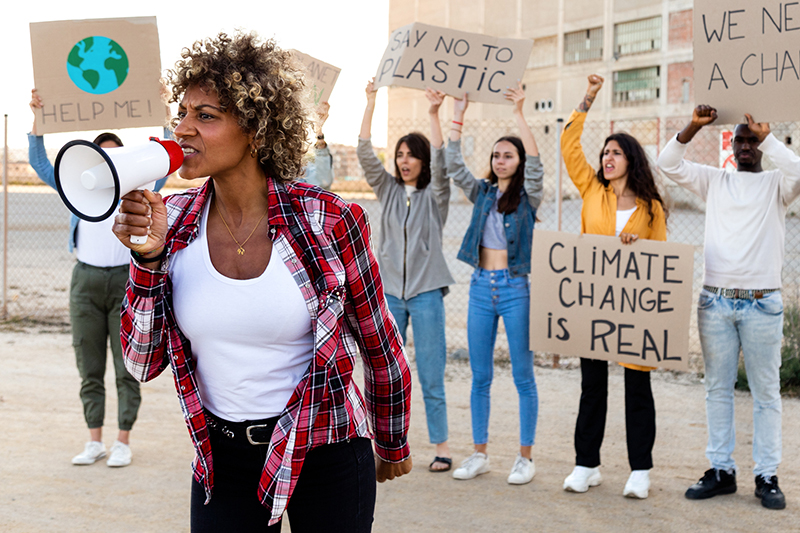There is a climate revolution happening across the world right now, but not exactly the type for which liberals had hoped. From the Netherlands to Sri Lanka, citizens fed up with government-imposed “green” mandates are pushing back, sometimes violently.
Images last week showed more than 100,000 angry Sri Lankans storming the presidential palace in Colombo. Half a world away in the Netherlands, normally calm Dutch farmers angrily blocked roadways and sprayed government buildings with manure.
Such moves as these result directly from government mandates forcing farmers to reduce nitrogen emissions or to stop using chemical fertilizers that have been widely used for decades around the world as a means of protecting crops and increasing yields. Predictably, farming then becomes costlier and consumer prices rise.
The Sri Lankan fertilizer ban, implemented without any transition plan, has pushed the country near starvation as crop yields plummet and food prices soar.
The mandated “green” initiatives in the Netherlands, which include cuts to both fertilizer and livestock, are making farming far more difficult for one of the world’s largest agricultural exporters.
The consequences of these policies are made worse because they are taking place in the context of a developing global food and energy crisis caused by the war in Ukraine. Europe’s rapid and ill-advised push for “renewable” energy left it dangerously reliant on Russia, and dramatically limited European countries’ options to respond to Vladimir Putin’s aggression.
In nearly every way, the global push for “green energy” has left citizens and democracies worse for the wear — energy shortages, skyrocketing inflation, and now, starvation.
This forces one to ask, what aspect of the “green” agenda has made the lives of people anywhere in the world better?
California’s energy policies targeting nuclear power and traditional fuel sources have made blackouts routine in the Golden State. The federal government mandate for ethanol additives in gasoline has cut the lifespan of internal combustion engines while reducing the miles-per-gallon of vehicles that use it.
Even if citizens sincerely care about improving environmental stewardship — which most people do, whether on the left or the right — the costs of current climate policies, especially when hastily implemented, are significant. The supposed benefits, on the other hand, are theoretical and largely reflect political spin. Families, whether in Colombo, Amsterdam, or Los Angeles, cannot feed themselves with hypothetical plans, optimistic charts, and vague promises.
Making the situation worse has been the cynical manner by which those in power often respond to citizens’ concerns; blithely dismissing them with an arrogant wave of the hand. For example, in response to increasing gas prices, President Biden’s Energy Secretary, Jennifer Granholm, cavalierly suggests simply going out and buying an electric vehicle.
Such a purchase might be an easy option for someone reportedly worth $8 million, but telling the average working-class family, already struggling to fill both their car and their pantry, to run out and purchase an expensive electric car, is nothing more than a cruel joke.
Truth be said, Granholm and others in this Administration consider the high price of fuel not so much of a problem as it is part of the solution – a necessary step on the road to a glorious future no longer reliant on fossil fuels.
Democrats may not see it, but the tide is turning against climate change tyrants who place political agendas above what is best for citizens in the here and now. What we are seeing in Europe, Africa, and Asia is a very real preview of what may happen in the U.S. if Democrats continue pushing Green New Deals that add to the inflation misery and supply-chain shortages already hurting businesses and families.
The Radical Left hoped to jumpstart a climate revolution; it succeeded, but instead of a massive shift towards green energy, their dangerous cognitive blend of hubris and paranoia has blinded them to the timeline needed for such a transformative change to energy and agriculture infrastructures, while deafening them to the concerns of the people most impacted by these plans.
The growing worldwide rebellions we are witnessing are as much about the disastrous consequences of climate change policies as they are about government elites who have long forgotten who they really serve – the people. Hopefully the fight against such destructive policies does not quickly wane.























